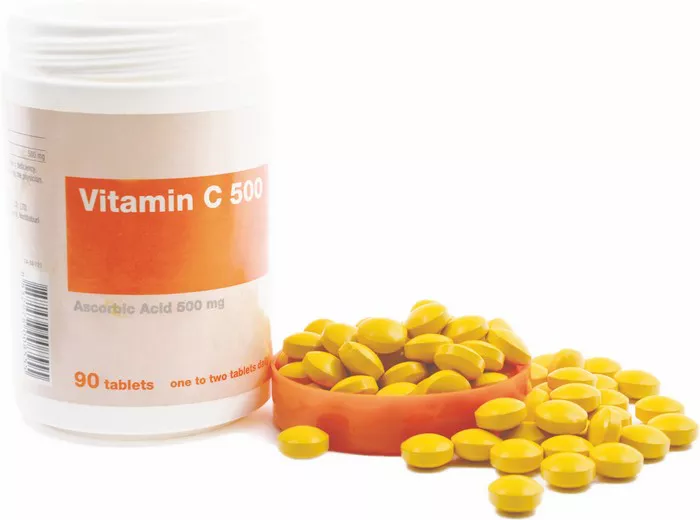In the pursuit of good health and disease prevention, vitamins play a crucial role. They are vital for strengthening the immune system and maintaining overall well-being. As modern medicine continues to explore how nutrients affect immune function, it becomes increasingly clear that certain vitamins are essential for keeping sickness at bay. This article delves into the key vitamins necessary for immune health, backed by scientific research, to guide you on what vitamins to incorporate into your daily regimen to enhance your immune defenses and reduce your susceptibility to illness.
Understanding the Immune System
The Role of the Immune System: Before diving into specific vitamins, it’s important to understand the basic functions of the immune system. The immune system is a complex network of cells, tissues, and organs that work together to defend the body against pathogens, including viruses, bacteria, and fungi. Maintaining a healthy immune system is crucial for preventing infections and several non-infectious diseases.
Factors Affecting Immune Health: Various factors can influence immune health, including age, genetics, lifestyle choices, and environmental factors. Nutritional deficiencies are among the leading causes of impaired immune function. Ensuring an adequate intake of essential nutrients is therefore critical for optimal immune performance.
Key Vitamins for Immune Support
Vitamin C
Importance and Benefits: Vitamin C, or ascorbic acid, is one of the most widely recognized nutrients for immune enhancement. It supports various cellular functions of both the innate and adaptive immune system. Vitamin C is known for its antioxidant properties, helping protect against oxidative stress—a key factor in immune suppression.
Sources and Recommended Intake: Vitamin C is abundant in many fruits and vegetables, including oranges, strawberries, kiwi, bell peppers, broccoli, kale, and spinach. The recommended daily intake is 75 mg for women and 90 mg for men, with higher doses often recommended during times of illness.
Vitamin D
Role in Immune Health: Vitamin D is unique because the body can produce it when exposed to sunlight. It plays a significant role in immune function by enhancing the pathogen-fighting effects of monocytes and macrophages — white blood cells that are important parts of your immune defense — and decreases inflammation.
Sources and Deficiency: Despite its importance, vitamin D deficiency is widespread, particularly in regions with limited sunlight exposure. Apart from sunlight, sources include fatty fish like salmon and mackerel, fortified foods, and supplements. The recommended daily allowance varies based on geographic location, age, and existing health conditions, but generally, 600-800 IU (international units) is advised.
Vitamin E
Antioxidant Effects and Immune Function: Vitamin E is a powerful antioxidant that helps protect cells from oxidative damage. It is vital for maintaining immune system function, especially among older adults. Vitamin E enhances the function of T-cells, which are crucial for a robust immune response.
Sources and Intake Recommendations: Vitamin E can be found in nuts, seeds, spinach, and broccoli. The recommended intake is 15 mg per day for adults. High doses of vitamin E supplementation can lead to adverse health effects, so it’s important to stick to recommended guidelines.
Vitamin A
Immune Enhancement Properties: Vitamin A is essential for maintaining mucosal surfaces by building up the mucous barriers in your eyes, lungs, gut, and genitals which help trap bacteria and other infectious agents. It is critical for normal functioning of the immune system.
Dietary Sources and Recommended Intake: Good sources of vitamin A include carrots, sweet potatoes, spinach, and dairy products. The daily recommended intake is 900 micrograms for men and 700 micrograms for women.
Vitamin B6
Supporting Immune Responses: Vitamin B6, or pyridoxine, is vital for biochemical reactions in the immune system. It supports the production of white blood cells and T-cells, which regulate immune responses and help the body cope with stress that can weaken the immune system.
Sources and Recommendations: Rich sources include chicken, turkey, tuna, salmon, lentils, sunflower seeds, cheese, carrots, and bananas. The recommended daily intake is 1.3 mg for adults up to 50 years old, with increased needs in older adults.
Supplementing with Vitamins
When to Consider Supplements: While getting vitamins from your diet is ideal, supplements can be beneficial when dietary intake is insufficient or when an individual has higher needs due to environmental factors or health conditions.
Choosing the Right Supplements: It is essential to choose high-quality supplements that meet regulatory standards. Consulting with a healthcare provider can ensure that you select the right types and amounts of supplements to meet your needs without exceeding safe levels.
Integrating Vitamins into Your Diet
Balanced Diet for Optimal Health: Integrating a variety of vitamin-rich foods into your diet is the best way to support your immune system. A diet rich in fruits, vegetables, whole grains, lean proteins, and healthy fats provides not only these essential vitamins but also other nutrients that support overall health and immune function.
Lifestyle Factors: In addition to dietary intake, other lifestyle factors such as regular physical activity, adequate sleep, hydration, and stress management are critical for maintaining immune health.
Conclusion
In summary, vitamins C, D, E, A, and B6 play pivotal roles in maintaining immune health and preventing illness. Ensuring adequate intake of these vitamins through a balanced diet and supplements, when necessary, can help bolster your immune defenses and protect against infections and disease. Remember, the best approach to immune health is a comprehensive one that includes a healthy diet, regular physical activity, adequate sleep, and proper hydration, all of which empower your body to fight off illnesses effectively.
[inline_related_posts title=”You Might Be Interested In” title_align=”left” style=”list” number=”6″ align=”none” ids=”8000,7950,7832″ by=”categories” orderby=”rand” order=”DESC” hide_thumb=”no” thumb_right=”no” views=”no” date=”yes” grid_columns=”2″ post_type=”” tax=””]































